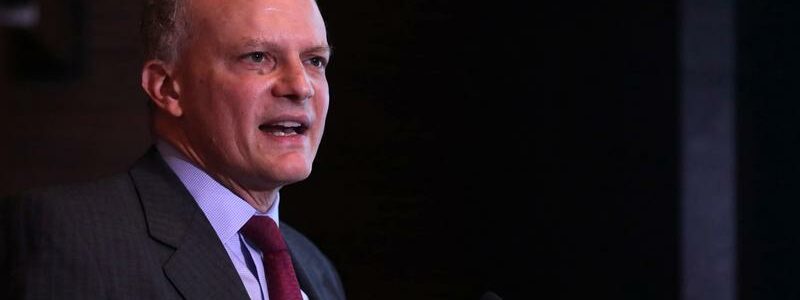
IMF sees uncertainty around Argentina's economic policies -official
NEW YORK (Reuters) -There is still a lot of uncertainty about Argentina’s economic policy path to make the country’s debt sustainable, an official at the International Monetary Fund said on Thursday.
“There’s always at least two legs to any restructuring. One is how you change the terms of your debt contracts, the other one is how you change your policies to make the new debt sustainable. And I think that second leg is where we have a lot of uncertainty,” said Alejandro Werner, the IMF’s head for the Western Hemisphere.
Argentina and the IMF are in negotiations to replace a failed program signed in 2018 for which the South American country owes the Fund about $45 billion.
Initially, the fund and the government expected a deal between April and May, but both have dropped any reference to that timeline.
Investors widely expect a deal will not be reached before legislative elections in late October, and Argentina’s dollar-denominated foreign debt is trading at distressed levels, around 30 cents on the dollar.
“We’re working to be ready whenever the government actually wants to finalize it and to accelerate it. I think we’re in a position to do it, but it’s true that, it is obvious that the negotiations have dragged on more than maybe what we thought… to be ready in the first half of this year,” Werner said in an event hosted by S&P Global.
Negotiations, both sides have said, remain “constructive”.
Late last month, economy minister Martin Guzman said “important steps” had been taken to advance negotiations days after Vice President Cristina Fernandez said the country lacked sufficient cash to pay back the fund.
Werner acknowledged the fund sees a split among the Argentine government.
“There seems to be significant differences of opinion within President Fernandez’s political allies on in which direction they should go, both policy wise, and also vis-à-vis the negotiations with the Fund,” he said.
Argentina’s economy ministry had no comment, a spokesman said.
Some private creditors with which Argentina struck a restructuring deal last year have complained about the slow progress of talks, the political debate surrounding the deal and lack of a clear economic policy from the government.
“In an electoral year, that also now happens to be a period in which the external environment is supportive of the financial accounts for Argentina… there is an interpretation on our side that maybe the government feels that (it) will be much better to undertake this political negotiation after the elections than before,” Werner said.
Argentina is battling a second wave of COVID-19 infections with record cases in recent days, though the government is looking to avoid blanket lockdowns to protect the nascent economic recovery.
There are also concerns that already high inflation could jump further despite government hopes of reining in prices, which would hit economic growth.
Source: Read Full Article